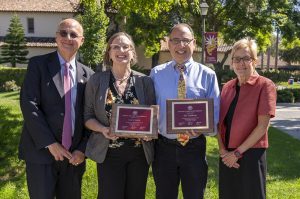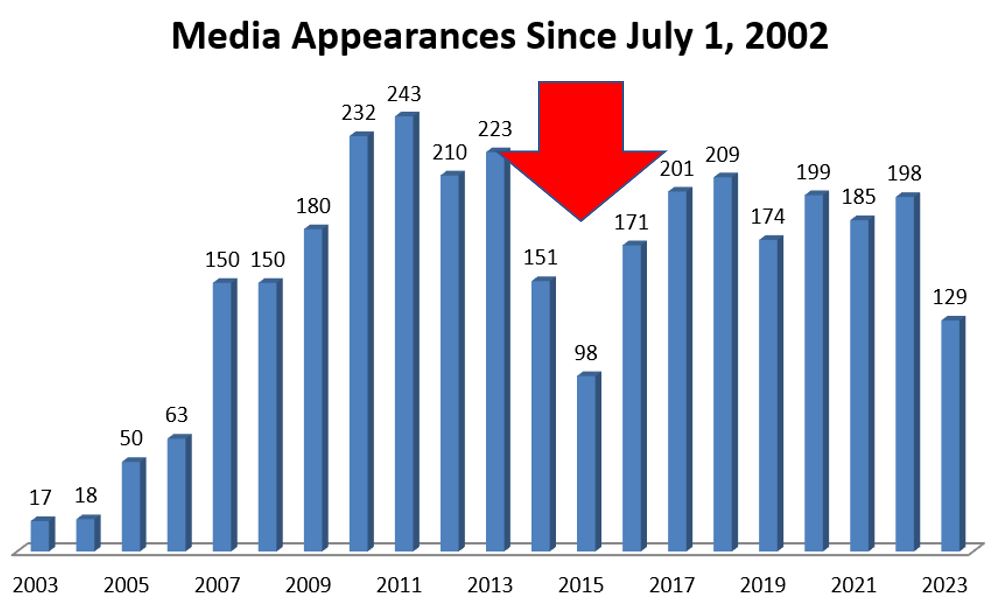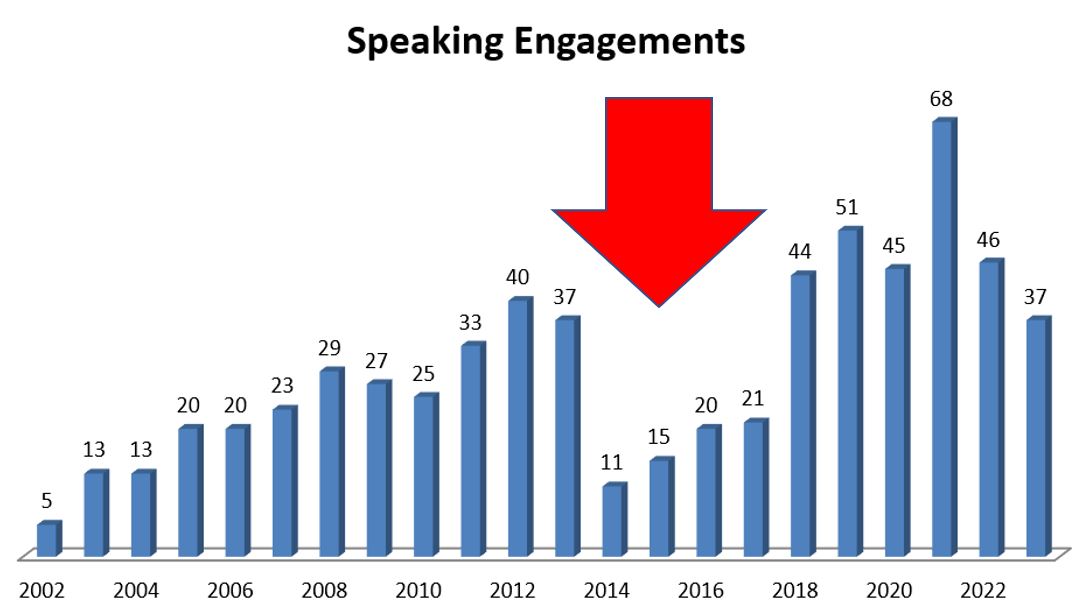Some Personal Good News: I Received a University-Wide Award for Curriculum Innovation
 My colleague Dean Laura Norris and I recently received a university-wide award, the 2023 Brutocao Family Foundation Award for Curriculum Innovation. Video of the presentation (click on our names). This appears to be the first time that law faculty have ever won this specific university award since its origin 30+ years ago.
My colleague Dean Laura Norris and I recently received a university-wide award, the 2023 Brutocao Family Foundation Award for Curriculum Innovation. Video of the presentation (click on our names). This appears to be the first time that law faculty have ever won this specific university award since its origin 30+ years ago.
The university’s citation reads:
Eric Goldman and Laura Norris’s co-creation and implementation of the Tech Edge JD Program and the Santa Clara Privacy Law Certificate have significantly impacted the pedagogy and curricular development at the Santa Clara University School of Law. The Tech Edge J.D. offers a significant innovation in the study and teaching of law. Described as nothing short of revolutionary, the program seamlessly integrates legal, business, and technology studies. The Privacy Law Certificate embodies the growing significance of privacy issues in the global, national, and California economies. Addressing this demand, the Privacy Law Certificate serves as an invaluable resource for students aiming to specialize in privacy law, and for the companies who need them.
* * *
Receiving this award has special meaning for me because it rewards the decisions the law school and I made during a challenging time in my life.
In January 2014, my wife was diagnosed with Stage IV lung cancer. Her diagnosis sent our family into a tailspin. I immediately assumed greater roles as caregiver and childcare provider, which stretched me thin throughout 2014 and into Spring 2015. I was already due for a sabbatical in 2015-16, and I scheduled a year-long sabbatical (at reduced pay). Then, just as I finished teaching my Spring 2015 courses, my mom died. Her death compounded my difficulties. On top of my existing obligations, I immediately assumed responsibility for her publishing business and 15 real estate properties–a project that ultimately took 18 months. By Fall 2015, it was clear I couldn’t resume my normal duties in Fall 2016.
Then-Dean Lisa Kloppenberg intervened. She helped me develop a package of deliverables for AY 2016-17 (at reduced compensation) that included the development of a novel curricular program–what became TEJD. This arrangement provided me the time I needed to pursue something important and innovative while also getting my personal situation under control. I did the TEJD market research and program design in 2016 and into 2017. The faculty approved TEJD in 2017, and it launched in 2018.
I routinely describe 2014-2017 as a dark period in my professional career. I retrenched everything. I produced fewer papers, and they were less ambitious. I didn’t teach for two years (this reflects my sabbatical and my ongoing part-time status/reduced pay). Other quantitative metrics, indicated by the red arrows, show the downturn numerically:
(The 2021 spike reflects the pandemic shutdown and the post-Trump Section 230 crisis. Conference organizers around the country added me to their events by video).
As you can see, all of these metrics rebounded after the dark period, as Dean Kloppenberg hoped they would.
I will always remain grateful for the law school’s support when I needed it. This award implicitly validates Dean Kloppenberg’s choices during the dark period. The award also implicitly signals that the university values the contributions I made to the law school at a time when I was working under high stress and my other professional contributions didn’t match my aspirations.
I’m honored to share the award with my co-awardee Dean Laura Norris. She took a good idea and figured out how to operationalize and scale it. In Dean Norris’ capable hands, TEJD has boosted the school’s incoming academic predictors, racial diversity, and employment outcomes.




[…] nearing the 9 year anniversary of my mom’s death. As regular readers know, her death in 2015 threw my life into chaos because she had a complicated estate to resolve: 15 real estate properties, her publishing […]